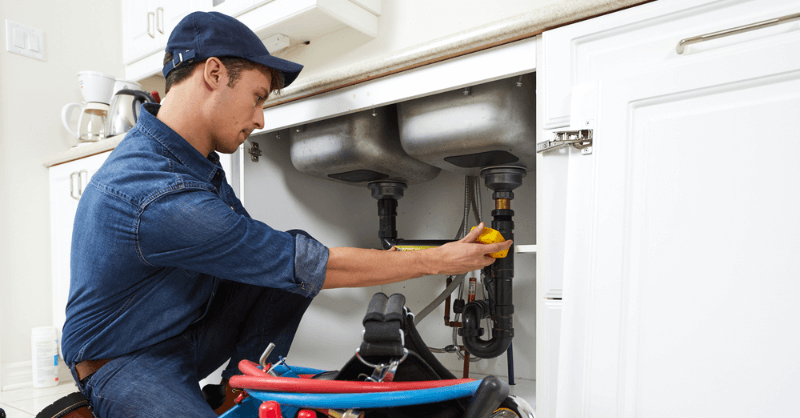When it comes to hiring someone to work on your home’s plumbing, experience and qualifications matter. Whether you’re dealing with a blocked drain, a leaking pipe, or planning a full bathroom renovation, choosing the right professional can make all the difference. In Australia, plumbing is a regulated trade, which means you should only trust a licensed plumber—but what exactly should you look for?
A qualified plumber must meet specific training, licensing, and compliance standards. Choosing a professional from a reputable plumbing company ensures that you receive high-quality service, legal compliance, and peace of mind. Let’s explore the key qualifications and attributes you should look for in a licensed plumber in Australia.
Licensing and Registration
The most important qualification is a valid plumbing licence. In Australia, plumbing is regulated at the state and territory level, and each jurisdiction has its own licensing authority. For example:
- VIC: Victorian Building Authority (VBA)
- NSW: NSW Fair Trading
- QLD: Queensland Building and Construction Commission (QBCC)
- WA: Plumbers Licensing Board
- SA: Consumer and Business Services (CBS)
- TAS, ACT, and NT have their own systems as well
A licensed plumber has completed a nationally recognised Certificate III in Plumbing, including years of on-the-job training through an apprenticeship. Always ask to see a plumber’s licence number and verify it with the relevant authority. Any reputable plumbing company will have no issue providing this information upfront.
Insurance and Compliance Certificates
A professional plumber should carry both public liability insurance and, in most states, be able to issue a compliance certificate for major plumbing work. This document verifies that the job was completed according to relevant standards and legal requirements. It’s a safeguard for homeowners and is often required for warranty or resale purposes.
When hiring a plumbing company, ask if they provide compliance certificates for large jobs such as water heater installations, bathroom renovations, or sewer connections. A plumber who avoids certification may not be performing work to the proper standard.
Trade Qualifications and Apprenticeship Training
All licensed plumbers must complete an apprenticeship, which includes a mix of classroom learning and hands-on training. This usually takes four years and includes instruction in water supply systems, drainage, roofing, gas fitting, and sanitation.
Additionally, some plumbers take advanced courses or specialise in certain areas. Look for qualifications like:
- Certificate IV in Plumbing and Services (for supervisory or specialist work)
- Endorsements in gas fitting, drainage, or roofing
A reputable plumbing company employs staff with these qualifications to handle a wide range of services, ensuring you get both expertise and flexibility for your job.
Relevant Experience and Areas of Specialisation
Not all plumbers are the same. Some specialise in residential repairs, while others focus on commercial plumbing or new construction. When choosing a plumber, ask how much experience they have with the specific issue you’re dealing with.
For instance, if you’re installing a new hot water system, a plumber with extensive experience in that area is ideal. A good plumbing company will assign a technician with the right skills for your job rather than taking a one-size-fits-all approach.
Reputation and References
Licensing is essential, but a plumber’s reputation is equally important. Look for reviews, testimonials, and word-of-mouth recommendations. Many Australians rely on trusted local services, so take the time to ask friends, neighbours, or your real estate agent.
Reputable plumbing companies will also be willing to provide references or case studies of previous jobs. If a plumber hesitates to share this, it may be a red flag.
Communication and Professionalism
Good communication is a sign of professionalism. A licensed plumber should be punctual, respectful of your home, and clear about the work they are doing. They should be willing to explain your options, provide transparent quotes, and answer any questions you have.
A professional plumbing company will usually offer written estimates, provide accurate timeframes, and give you updates during the job. This level of professionalism ensures fewer surprises and a more positive experience overall.
Ongoing Training and Compliance with Australian Standards
Plumbing regulations and technologies continue to evolve. Look for plumbers who stay current with industry changes by attending training workshops, working with the latest tools, and keeping up with updates to the National Construction Code (NCC) and Australian Standards.
A high-quality plumbing company will invest in continuous education for its staff, ensuring they remain compliant and competent in all areas of plumbing.
Final Thoughts
Choosing a licensed plumber isn’t just about ticking boxes—it’s about protecting your home, your safety, and your finances. A qualified professional brings not only technical skill but also legal compliance and peace of mind.
By working with a reputable plumbing company, you can be confident that the work will be done to the highest standard. Look for verified licensing, insurance, trade qualifications, and a solid reputation. The right plumber will not only solve your problem but also help prevent future issues, saving you time and money in the long run.
If you’re unsure where to start, reach out to a well-reviewed plumbing company in your area. They’ll guide you through the process and ensure your plumbing needs are handled professionally and legally.



